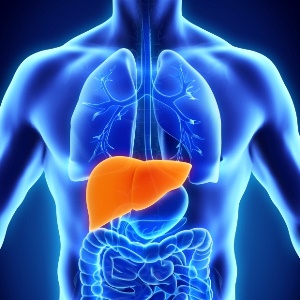Health Matter: What Is Hepatitis?


FRANCIS EZEDIUNO
The term ‘hepatitis’ simply means inflammation of the liver. Hepatitis may be caused by a variety of viruses or other infections, medications, or a toxin such as alcohol. Hepatitis viruses that can cause injury to liver cells in addition to hepatitis B include the hepatitis A and hepatitis C viruses. These viruses are not related to each other or to the hepatitis B virus, and they differ in their structure, the ways they are spread among individuals, the severity of symptoms they can cause, the way they are treated, and the outcome of the infection. Other hepatitis viruses (hepatitis D, hepatitis E, and hepatitis G) cause disease much less commonly.
Hepatitis B is an infection of the liver caused by the hepatitis B virus (HBV). It is estimated that 2 billion people worldwide have evidence of current or past hepatitis B infection, including more than 250 million chronic carriers and more than 600,000 deaths worldwide each year.
When a person first gets hepatitis B, they are said to have an ‘acute’ infection. Most people are able to eliminate the virus and are cured of the infection. Some are not able to clear the virus and have ‘chronic’ infection with hepatitis B that is usually life-long.
What kind of a virus is hepatitis B?
The hepatitis B virus is a DNA virus, meaning that its genetic material is made up of deoxyribonucleic acids. It belongs to a family of viruses known as Hepadnaviridae. The virus is primarily found in the liver but it’s also present in the blood and certain body fluids.
How does hepatitis B virus cause liver injury?
The hepatitis B virus reproduces in liver cells, but the virus itself is not the direct cause of damage to the liver. Rather, the presence of the virus triggers an immune response from the body as the body tries to eliminate the virus and recover from the infection. This immune response causes inflammation and may seriously injure liver cells. Therefore, there is a balance between the protective and destructive effects of the immune response to the hepatitis B virus.
How is the hepatitis B virus spread (transmitted)?
Hepatitis B is spread mainly by exposure to infected blood or body secretions and sexual intercourse. In infected individuals, the virus can be found in the blood, semen, vaginal discharge, breast milk, and saliva. Hepatitis B is not spread through food, water, or by casual contact.
Hepatitis B also may be spread from infected mothers to their babies at birth (so-called ‘vertical’ transmission). This is the most prevalent means of transmission in regions of the world where hepatitis B rates are high. The rate of transmission of hepatitis B from mother to newborn is very high, and almost all infected infants will develop chronic hepatitis B. Fortunately, transmission can be significantly reduced through immunoprophylaxis.
Rarely, hepatitis B can be transmitted through transfused blood products, donated livers and other organs. However, blood and organ donors are routinely screened for hepatitis which typically prevents this type of transmission.
What are the symptoms of acute hepatitis B?
Acute hepatitis B is the period of illness that occurs during the first one to four months after acquiring the virus. Only 30% to 50% of adults develop significant symptoms during acute infection. Early symptoms may be non-specific, including fever, a flu-like illness, and joint pains. Symptoms of acute hepatitis may include: fatigue, loss of appetite, nausea, jaundice (yellowing of the skin and eyes), and pain in the upper right abdomen (due to the inflamed liver).
Rarely, acute hepatitis damages the liver so badly it can no longer function. This life-threatening condition is called “fulminant hepatitis.” Patients with fulminant hepatitis are at risk of developing bleeding problems and coma resulting from the failure of the liver.
What determines the outcome of acute hepatitis B?
The body’s immune response is the major determinant of the outcome in acute hepatitis B. Individuals who develop a strong immune response to the infection are more likely to clear the virus and recover. However, these patients also are more likely to develop more severe liver injury and symptoms due to the strong immune response that is trying to eliminate the virus. On the other hand, a weaker immune response results in less liver injury and fewer symptoms but a higher risk of developing chronic hepatitis B. People who recover and eliminate the virus will develop life-long immunity, that is, protection from subsequent infection from hepatitis B.
Most infants and children who acquire acute hepatitis B viral infection have no symptoms.
What are the symptoms of chronic hepatitis B?
The liver is a vital organ that has many functions. These include a role in the immune system, production of clotting factors, producing bile for digestion; storing nutrients including sugars, fats and minerals for use by the body later; processing medications; and breaking down toxic substances. Patients with chronic hepatitis B develop symptoms in proportion to the degree of abnormalities in these functions. The signs and symptoms of chronic hepatitis B vary widely depending on the severity of the liver damage. They range from few and relatively mild signs and symptoms to signs and symptoms of severe liver disease (cirrhosis or liver failure).
Most individuals with chronic hepatitis B remain symptom free for many years or decades. During this time, the patient’s liver function blood tests usually are normal or only mildly abnormal. Some patients may deteriorate and develop inflammation or symptoms, putting them at risk for developing cirrhosis.
Cirrhosis of the liver due to hepatitis B. Inflammation from chronic hepatitis B can progress to cirrhosis (severe scarring) of the liver. Significant amounts of scarring and cirrhosis lead to liver dysfunction.
Symptoms may include: weakness, fatigue, loss of appetite, weight loss, breast enlargement in men, a rash on the palms, difficulty with blood clotting, and spider-like blood vessels on the skin.
Advanced cirrhosis of the liver due to hepatitis B. In patients with advanced cirrhosis, the liver begins to fail. This is life-threatening condition. Several complications occur in advanced cirrhosis: Confusion and even coma (encephalopathy) results from the inability of the liver to detoxify certain toxic substances.
Patients with advanced cirrhosis often develop jaundice because the damaged liver is unable to eliminate a yellow compound, called bilirubin.
Hepatitis B virus and primary liver cancer (hepatocellular carcinoma)
Patients with chronic hepatitis B are at risk of developing liver cancer. The way in which the cancer develops is not fully understood. Symptoms of liver cancer are nonspecific. Patients may have no symptoms, or they may experience abdominal pain and swelling, an enlarged liver, weight loss, and fever. The most useful diagnostic screening tests for liver cancer are a blood test for a protein produced by the cancer called alpha-fetoprotein and an ultrasound imaging study of the liver. These two tests are used to screen patients with chronic hepatitis B, especially if they have cirrhosis or a family history of liver cancer.
What is the natural cause of chronic hepatitis B?
The cause of chronic hepatitis B is variable and depends on several factors. These factors are the patient’s age at which the infection began, the extent of viral multiplication, and the immune system’s ability to control the infection. The infection can progress from an Immune tolerant phase (in which the immune system ignores the virus), Immune clearance phase (in which the immune system attempts to eliminate the virus), Quiescent phase (in which the virus is less active) and immune clearance phase.
What medications are used to treat hepatitis B?
Acute infection
Acute infection with hepatitis B usually does not require treatment. In rare cases, however, the infection may cause life-threatening liver failure. Patients with liver failure due to acute hepatitis B should be evaluated for liver transplantation.
What are the effects of alcohol on hepatitis B?
Agents that damage the liver are particularly harmful in patients who already have hepatitis B. For this reason, it is recommended that people with hepatitis B avoid drinking alcohol.
What can be done to prevent hepatitis B?
Hepatitis B is a preventable disease. Vaccination and post-exposure prophylaxis have significantly reduced rates of infection. Risk can also be reduced by avoiding unprotected sex, contaminated needles, and other sources of infection.
Adults in high risk situations also are advised to receive hepatitis B vaccine. This includes: health care workers, dentists, intimate and household contacts of patients with chronic hepatitis B infection, public safety workers who may be exposed to blood, men who have sex with men, individuals with multiple sexual partners, dialysis patients, injection drug users, people with chronic liver disease, residents and staff in institutions that care for people with developmental disabilities, people infected with HIV, people who require repeated transfusions or blood products.
How is transmission of hepatitis B virus from mother to newborn infant prevented?
Infected mothers can pass hepatitis B to their newborn infants. All pregnant women should have their blood tested to determine if they are infected. Infants born to infected mothers should receive HBIG and hepatitis B vaccine at birth. This is 85% to 95% effective in eliminating the risk of hepatitis B in the infant.
What is new in the treatment of hepatitis B?
New agents are under development to treat hepatitis B. Many of these are nucleoside/nucleotide analogues that investigators hope will be more effective than older agents. Experts also are working on treatment guidelines and the use of multi-drug therapy. Vaccination remains the key to preventing hepatitis B and holds the most promise for reducing disease burden.
- This piece was written by Dr. Sunday Abiodun Ojenuwah, Consultant Herpetologist










